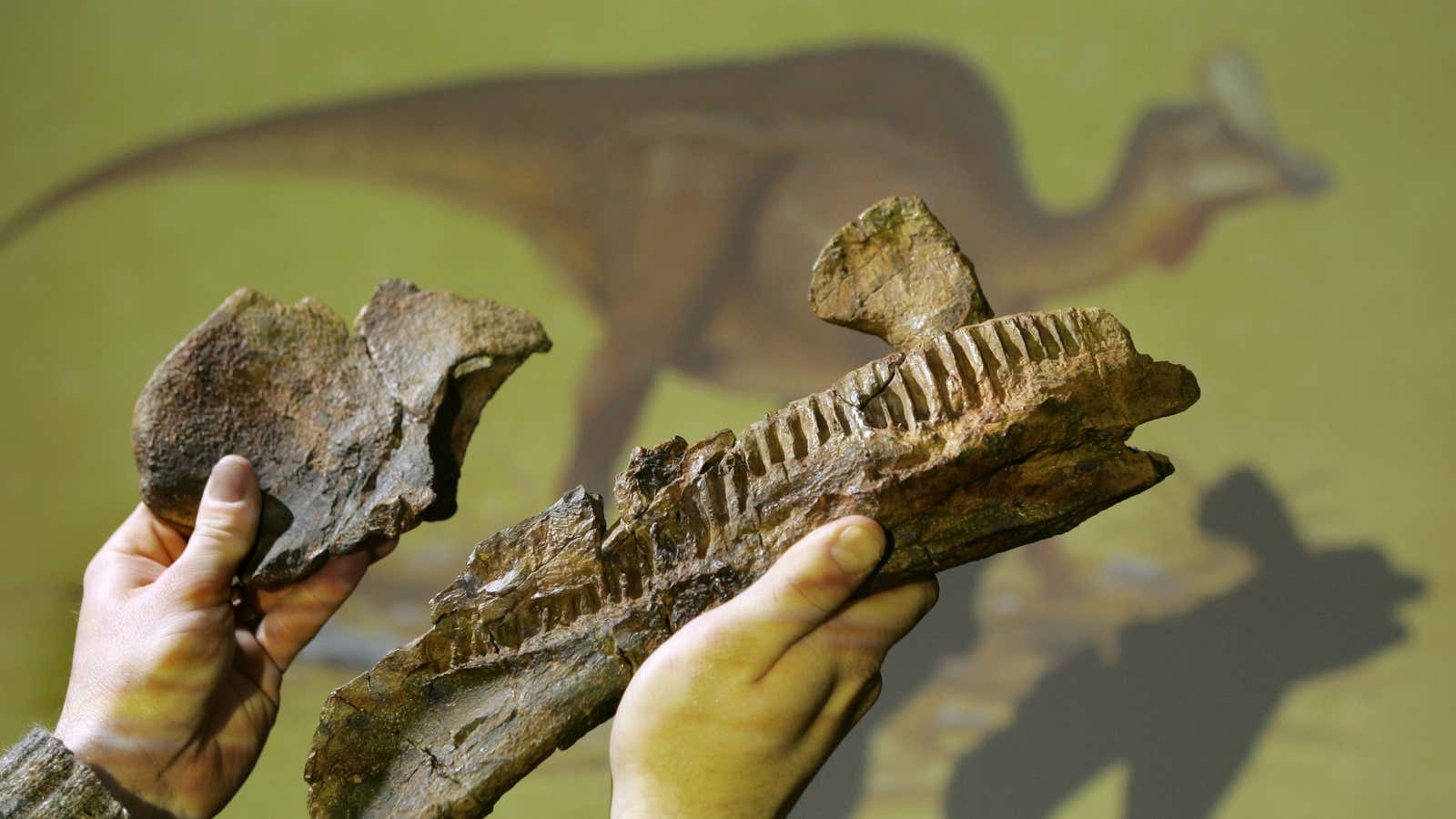Even some vegetarian dinosaurs—who never even knew the joys of ribeye steak—didn’t stick to their green diets.
Karen Chin, a paleontologist at the University of Colorado, told NPR that her research team not long ago came across some fossilized dinosaur poop, called coprolites, in the Grand Staircase-Escalante National Monument in Utah. She was fairly certain that the stool samples came from hadrosaurs, because they looked similar to other specimen she had studied, and could be dated to about 75 million years ago, when these vegetarian dinosaurs, with a bill like a modern bird, walked the planet.
Except in this case, as the researchers reported on Sept. 21 in Scientific Reports, the stool samples contained material that make up crab and mollusk shells.
That was is highly unexpected for these duck-billed dinos that had dull teeth meant for chewing on plants. The scientists say they have evidence that the shell fragments were big enough to suggest that the hadrosaurs were intentionally chomping down on seafood, rather than accidentally eating some stray shell bits with their prehistoric salads.
The shell pieces also appeared in the majority of the poop samples over a span of 20 km (about 12.5 miles), which signaled to researchers that this was probably not just one herbivore gone rogue.
These coprolites contained rotting logs, which Chin thinks housed these shellfish snacks. Other research has shown that insects with shells and tiny crabs (pdf) tend to make their homes in old wood. Taken together, the fossilized evidence “suggest[s] that the dinosaurian defecators consumed sizeable crustaceans that sheltered in rotting logs,” the authors write.
The researchers believe the hadrosaurs only ate shellfish seasonally. It could have been that they switched over to shellfish when vegetation was scarce, or when they needed an extra calcium and protein boost, as they would during breeding and egg-laying season. For the most part, though, they probably stuck to their plant-based diets.
But who knows? It’s impossible to piece together a dinosaur’s (or anyone’s) lifestyle through their fossilized remains, bones or otherwise. “I think it reminds us that there’s a lot we just don’t know about the behavior of ancient animals,” Chin told NPR.
